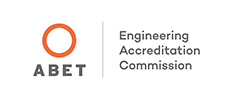On this page:
- Why Choose Mechanical Engineering?
- Careers
- Real-World Experience
- Success Stories
- Academics and Curriculum
- Admission
- Accreditation and Program Outcomes
Why Choose Mechanical Engineering?
Mechanical engineers focus on the analysis, design, automation, fabrication, testing, evaluation, and optimization of mechanical systems. Mechanical engineers are designers and problem solvers who are involved, in some way, with practically everything around us.
Historically, mechanical engineering (ME) includes two branches of study. The first deals with heat, fluids, and energy, such as combustion in a rocket engine, the wind and water flow past a racing yacht, or the design of a solar panel for a space station. The second area concerns force and motion in mechanical systems such as determining robot trajectories, analyzing automotive vibration and noise, and computing stress levels in the wings of a new aircraft.
Careers
Mechanical engineers are the leading designers of cars and airplanes, jet and rocket engines, robotics, and machinery. They design, build, and maintain machines of all sizes—massive to nano-sized.
With a degree in ME, you can work in engineering services, research and development, manufacturing industries, amusement parks, the federal government, and more.
Our graduates are employed by:
- AK Steel
- BerrieHill Research Corporation
- BWI Group
- Emerson Climate Technologies
- Heapy Engineering
- Hobart Corp.
- Honda of America Manufacturing
- Konecranes
- KTH Parts
- Mahle Behr
- Midmark
- Navistar International Corporation
- Materials Resources LLC
- NuVasive Manufacturing, LLC.
- Ranly Design Innovations
- Sierra Lobo
- Tenneco
- UTC Aerospace Systems
- YASKAWA Motoman Robotics
Our Graduates work as:
- Advanced Manufacturing Engineer
- Application Engineer
- Design Engineer
- Engineering Coordinator
- Manufacturing Engineer
- Mechanical Engineer
- Process Engineer
- Project Engineer
- Test Engineer
- Sales Engineers
It's never too early—or too late to start managing your career in engineering. Learn more about the Brandeberry Career Development Center.
Real-World Experience
We encourage you to apply skills learned in the classroom through study abroad, undergraduate research, co-op/internships, and/or service learning. You will learn from qualified professionals who actively work in the field of mechanical engineering and work on mechanical engineering projects, allowing you to apply your classroom education to real-world situations.
Success Stories
Academics and Curriculum
View the Bachelor of Science in Mechanical Engineering program information, degree requirements, and graduation planning strategy in the Academic Catalog.
Admission
Review the admission requirements and complete the admission application. Identify your desired major on the application. If you meet university admission requirements you are admitted to the college.
Accreditation and Program Outcomes
The Bachelor of Science program in Mechanical Engineering is accredited by the Engineering Accreditation Commission of ABET, www.abet.org, under the General Criteria and the Program Criteria for Mechanical and Similarly Named Engineering Programs.

ABET Accreditation
Annual Student Enrollment:
- 303 at Dayton Campus in Fall 2024
- 87 at Lake Campus in Fall 2024
Graduation Data:
- 57 at Dayton Campus (Summer 2023-Spring 2024)
- 18 at Lake Campus (Summer 2023-Spring 2024)
Educational Objectives:
The program educational objectives for the Mechanical Engineering program are:
- Objective 1: Actively engaged in the practice of mechanical engineering or in a related field
- Objective 2: Addressing vital engineering needs in local, national, and international arenas
- Objective 3: Recognized for their ethical standards and professional contributions in the workplace and to society at large
- Objective 4: Dedicated to life-long learning, as demonstrated by the attainment of professional licensure, advanced degrees, certificates, or other continuing education activities
Student Outcomes:
Students who complete the B.S. in mechanical engineering will have:
- an ability to identify, formulate, and solve complex engineering problems by applying principles of engineering, science, and mathematics
- an ability to apply engineering design to produce solutions that meet specified needs with consideration of public health, safety, and welfare, as well as global, cultural, social, environmental, and economic factors
- an ability to communicate effectively with a range of audiences
- an ability to recognize ethical and professional responsibilities in engineering situations and make informed judgments, which must consider the impact of engineering solutions in global, economic, environmental, and societal contexts
- an ability to function effectively on a team whose members together provide leadership, create a collaborative and inclusive environment, establish goals, plan tasks, and meet objectives
- an ability to develop and conduct appropriate experimentation, analyze and interpret data, and use engineering judgment to draw conclusions
- an ability to acquire and apply new knowledge as needed, using appropriate learning strategies.


